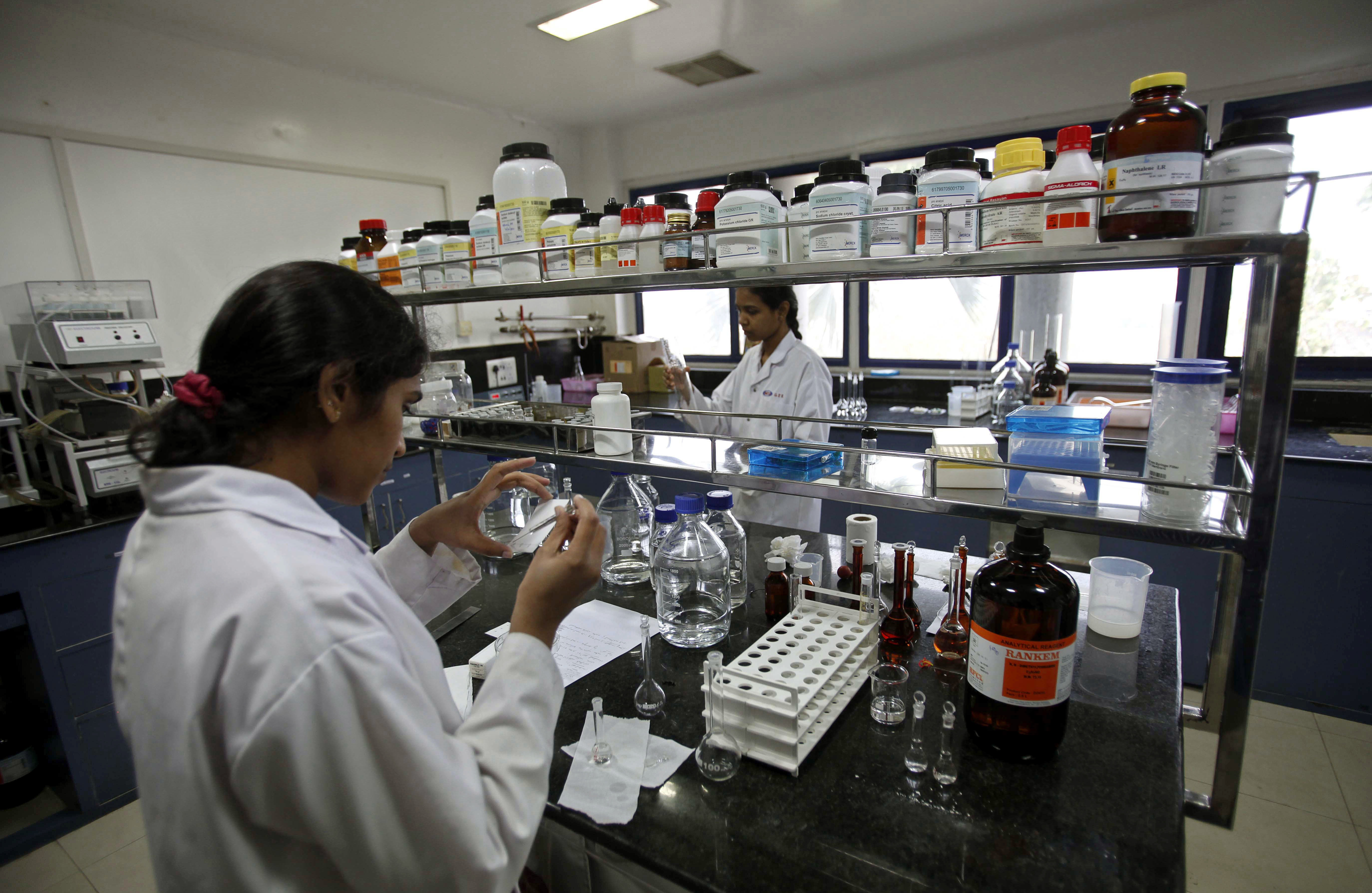Share post now
Opinion
Agreement with India: what risks for generics and seeds?
23.01.2024, Trade and investments
Guy Parmelin, the Swiss Minister of Economic Affairs, announced on Sunday that he had reached an agreement in principle with India on a free trade agreement, negotiations on which had been going on for 16 years. Without giving any further details, he assured that the two parties had also reached agreement on the issue of patent protection, which had been the main stumbling block.

Indian scientists work in a laboratory at the Research and Development Centre in Hyderabad, India.
© Keystone / AP / Mahesh Kumar
We don't know what this agreement contains – the negotiations are secret and have not been completed – but Alliance Sud and like-minded Indian organisations such as Third World Network (TWN) are worried. Until now, the Indian government has always maintained that it did not want intellectual property rights to be strengthened (known in the jargon as TRIPS+) in free trade agreements (FTAs). We understand that Switzerland demanded TRIPS+ provisions as a condition to conclude the free trade agreement and we suspect that there might be inclusion of this kind of provisions in the final text.
From the point of view of the right to health, this would be problematic. India is the world's leading producer of generic medicines, which it exports to developing countries. Under current law, patents last for 20 years from the date of filing, as stipulated in the TRIPS agreement of the World Trade Organisation. The free trade agreement could provide for an extension of the patent term beyond 20 years, which would delay the release of generic medicines.
In addition, the current law does not provide for data exclusivity, which means that a drug can be approved at any time, whether it is a new product, or a product approved anywhere in the world. The FTA could force India to change its law to introduce data exclusivity, which would delay the introduction of generic medicines.
Finally, under the current system, India does not grant patents for a new use of a known molecule (evergreening). The FTA could require India to introduce this obligation.
If the FTA contains these provisions, India will have to amend its Patent Act and reduce the flexibility it provides. This would also set a precedent in the ongoing free trade agreement negotiations with the European Union, the United Kingdom and the United States.
Another problem could be seed protection. Switzerland usually asks developing countries with which it negotiates free trade agreements to sign up to UPOV 91, the convention that "privatises" seeds so as to make it more difficult for farmers to reuse and exchange them. If this provision is also included in the agreement with India, it would jeopardise the right to food of small farmers who cannot afford to buy patented seeds, or who do not want to.
Alliance Sud calls on Switzerland to lift the veil on these negotiations and not to jeopardise the right to health and access to seeds of the Indian population, especially the most vulnerable.
